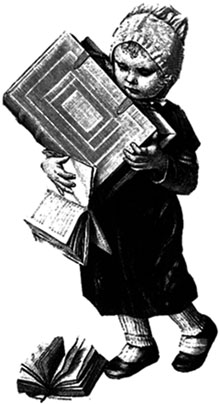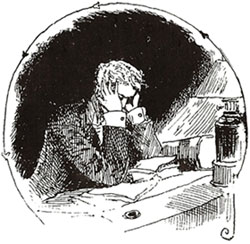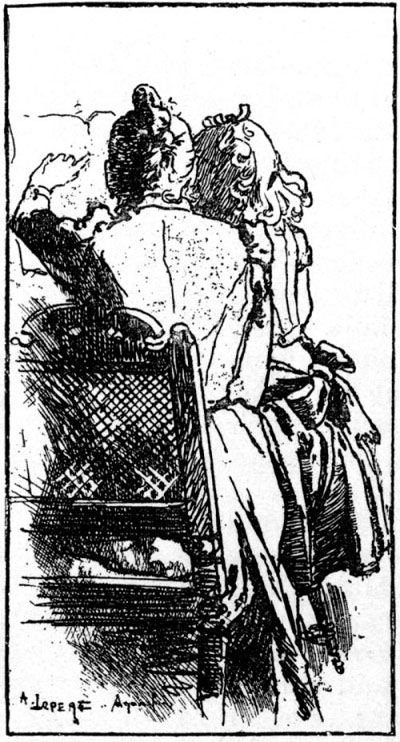Reading, 2008
by Rob Zaretsky
Today, The University of Houston's Honors College presents this program about the machines that make our civilization run, and the people whose ingenuity created them.
 In 2007, the National Endowment for the Arts released a report titled "To Read or Not to Read." Deliberate or not, the allusion to Hamlet's words reflected the crisis the NEA sees at hand. Less than one third of thirteen year olds are daily readers, a 14 percent decline from 1987. Young Americans spend two hours a day watching TV, seven minutes reading recreationally. Reading scores are nose-diving, while functional illiteracy rises. The NEA's chairman, Dana Gioia, grimly warns that these "startling declines" threaten our "culture, economy and civic life." To read or not to read: is it possible that it boils down to being or not being?
In 2007, the National Endowment for the Arts released a report titled "To Read or Not to Read." Deliberate or not, the allusion to Hamlet's words reflected the crisis the NEA sees at hand. Less than one third of thirteen year olds are daily readers, a 14 percent decline from 1987. Young Americans spend two hours a day watching TV, seven minutes reading recreationally. Reading scores are nose-diving, while functional illiteracy rises. The NEA's chairman, Dana Gioia, grimly warns that these "startling declines" threaten our "culture, economy and civic life." To read or not to read: is it possible that it boils down to being or not being?
Of course, such alarms are as old as the invention of the alphabet. But I wonder if today's crisis is like those past. I confess my students seem none the worse for life in a post-literate world. Do they really need books? Aren't there equally legitimate activities for their minds? And aren't they reading in their own way? The medium has changed -- cell phones and computer screens -- but not the message: written language continues to structure their world.
 But is there reading and reading? Maryanne Wolf suspects this is the case. In her book Proust and the Squid, Wolf traces the history of reading as well as the brain's wiring that makes reading possible. The
But is there reading and reading? Maryanne Wolf suspects this is the case. In her book Proust and the Squid, Wolf traces the history of reading as well as the brain's wiring that makes reading possible. The
odd thing, it turns out, is not that we read so well, but that we read at all. You see, nature never made the brain to read. Scientists tell us we are genetically programmed to see and speak. But look as hard as they may, they can find no direct genetic program for reading. Instead, some 5,000 years ago-a mere flick of a page in the history of humankind the reading brain cannibalized existing functions, like those for vision and speech, and created something very, very new.
What, precisely, is this "thing" -- this reading brain? Well, my students might put it this way: new software transforms older hardware in ways never imagined by its maker. One researcher describes it as "neuronal recycling." But to my mind, we're all a bit like Hal in "2001": our software leads to self-awareness and reflection. The ethical and intellectual consequences are beyond measure. Just as the reading brain goes beyond its original design, Wolf writes, "it also reflects the reader's capacity to go beyond what is given by the text and the author."
 In a word, through reading we both make and remake ourselves and our world. But can any sort of reading provide the conditions that make us human (and humane)? Is it possible that literature and history, biography and memoir engage the brain in ways that text-scrolling the web-surfing do not? My students can locate and decipher information. But entering into the complexity and fullness of a novel cultivates our critical ability to see another's life, and as a result, see our own.
In a word, through reading we both make and remake ourselves and our world. But can any sort of reading provide the conditions that make us human (and humane)? Is it possible that literature and history, biography and memoir engage the brain in ways that text-scrolling the web-surfing do not? My students can locate and decipher information. But entering into the complexity and fullness of a novel cultivates our critical ability to see another's life, and as a result, see our own.
I'm Rob Zaretsky, at the University of Houston, where we're interested in the way inventive minds work.
Wolf, Maryanne: Proust and the Squid: The Story and Science of the Reading Brain. (New York: Harper, 2007). (Images from various pre-1922 magazines.)
